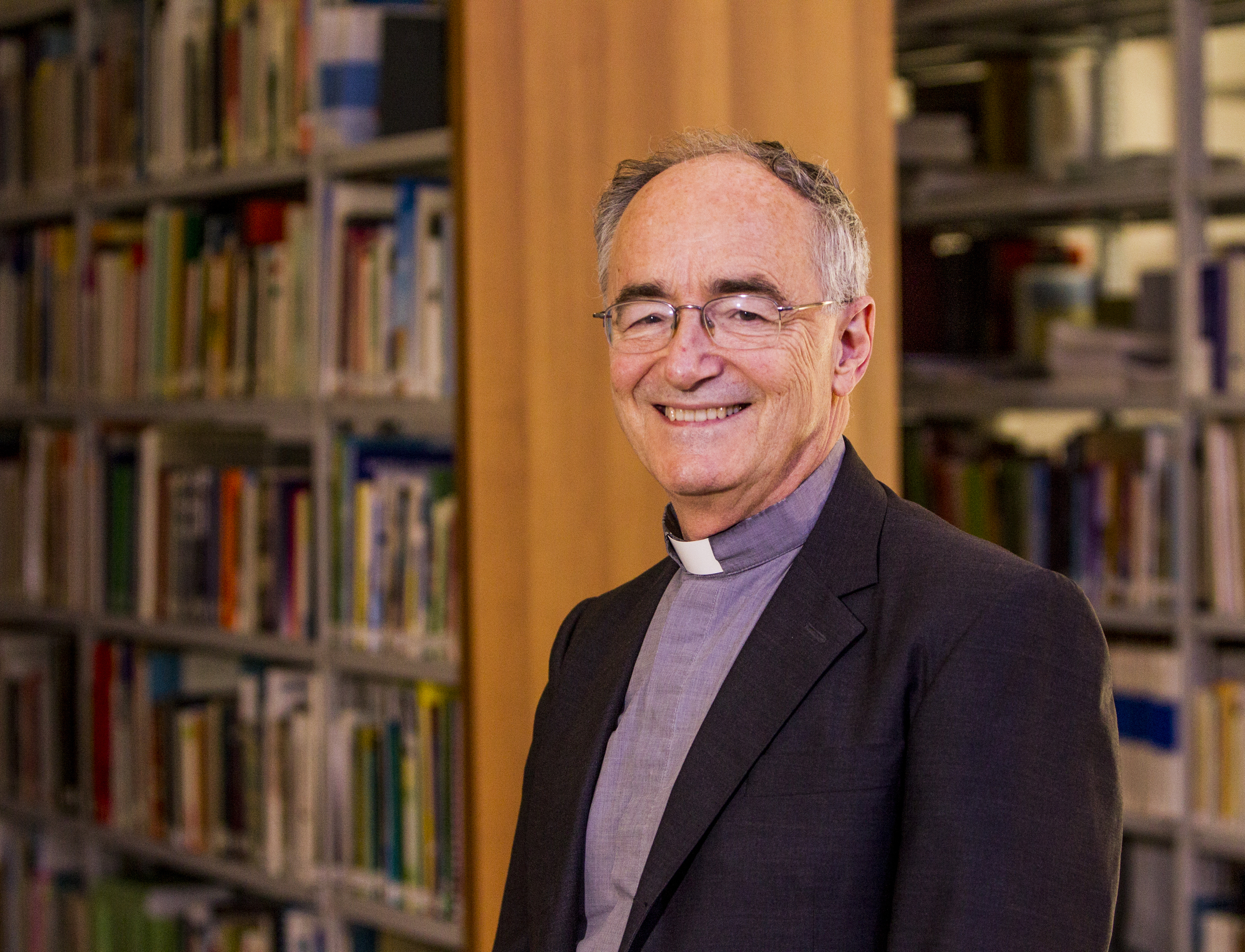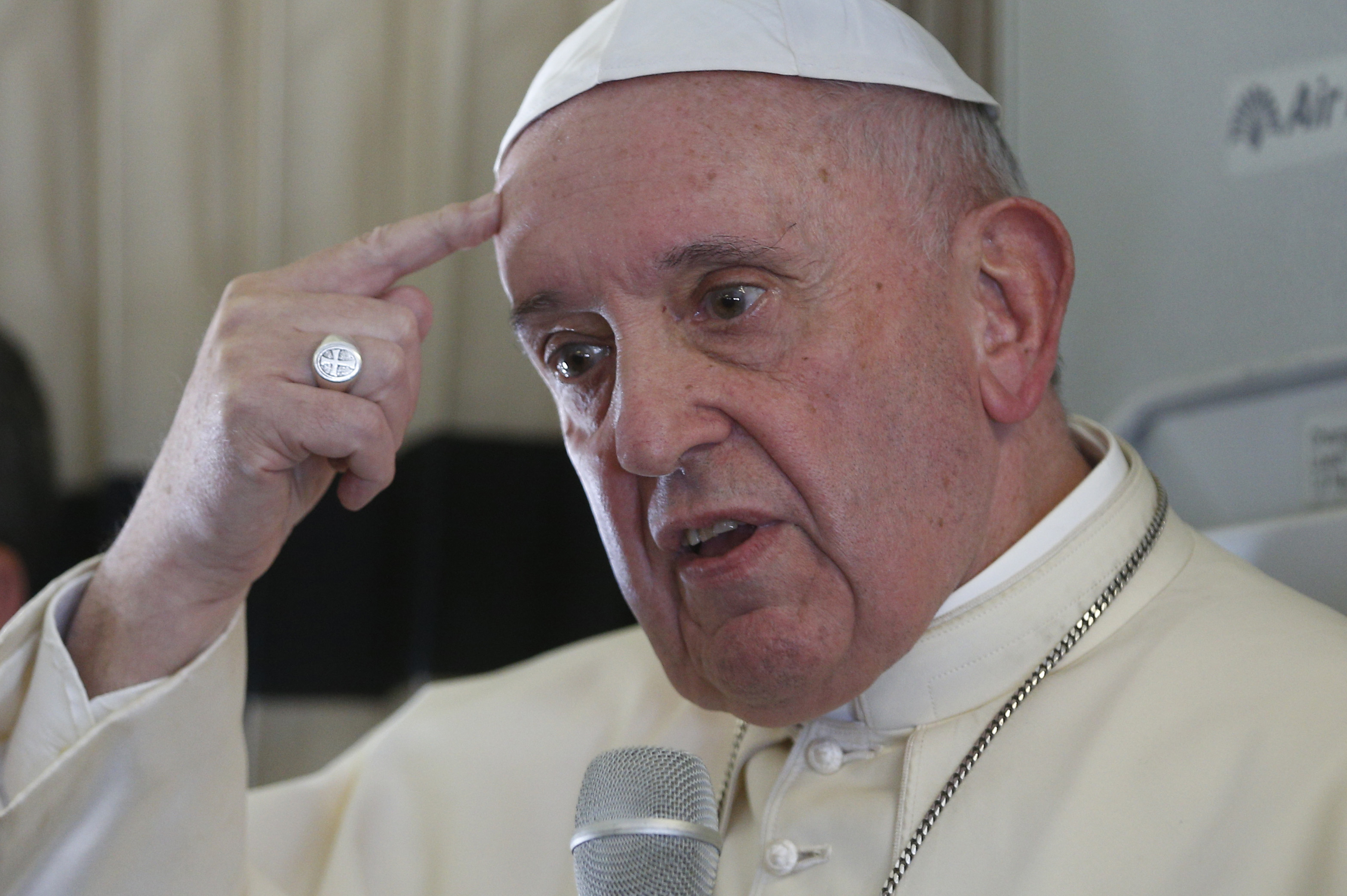Christianity is no stranger to disagreements, internal fights and schisms.
In the early days, St Paul was forced to address controversies on circumcision, observance of the Sabbath, and the Mosaic law, warning in his Letter to the Galatians: “if you bite and devour each other, you will be destroyed.”
On the papal plane returning from Madagascar, Pope Francis offered something similar to his opponents, found largely in the Roman Curia, wealthy groups in the United States and traditionalist networks.
Speaking to reporters, the Pope made an appeal to those opposed to the direction of his pontificate: make constructive criticism in a spirit of dialogue, and not “criticism of the arsenic pills” where stones are thrown by hidden hands.
He is perturbed by “under the table” knifings from those who “smile at you, letting you see their teeth and then they stab you in the back.” These attacks, the Pope stressed, are driven by an “ideology detached from doctrine,” and an “elitist separation” from ordinary Catholics (the vast majority who support Francis). The result is schism.
“The schismatics always have one thing in common: they separate themselves from the people, from the faith of the people of God,” he pointed out.
Despite being on the receiving end of a brutal and sustained guerrilla war from his opponents, Francis is not trying to shut down those who disagree with him. He is the one who has opened up a free-wheeling discussion inside the Church and who calls on bishops to talk to him and others with “parrhesia” (the Greek word for speaking frankly.)
This is a Pope who does not seek the security of old modes of the papal office, where the temptation is to stamp out any dissent but seeks his leadership authority from witnessing to the Gospel, which includes the humility to admit mistakes.
“Criticism always helps, always,” he told reporters during his in-flight press conference. “I always benefit from criticism. Sometimes it makes you angry…. But there are advantages.”
Yet there are no benefits, he says, to those who criticise him without waiting for a response or “without getting into dialogue.” Such an approach “is not to have the good of the Church at heart, it is chasing after a fixed idea, to change the Pope or to create a schism.”
Throughout his six-year pontificate we have seen plenty of examples of criticism of Francis without any attempt at dialogue. A group of cardinals submitted a series of “dubia” - doubts - to the Pope about his family life teaching, “Amoris Laetitia,” which opened the path to divorced and remarried Catholics to receive communion. The questions submitted to Francis requested a “Yes” or “No” response, without any theological argument, and came after the world’s bishops had gathered for two synods to discuss the disputed matters. The cardinal leading the initiative, Raymond Burke, has since threatened to the correct the Pope while setting out the grounds for how to dispute the validity of Francis’ election.
An openness to dialogue also appeared to be missing in the case of Archbishop Carlo Maria Viganò, the former papal ambassador to the United States, who submitted a 26 August 2018 dossier calling on Francis to resign. His accusations that the Pope mishandled homosexual harassment claims against ex-Cardinal Theodore McCarrick were publicised by Catholic media known for their hostility to Francis, as the Pope was mid-way through a visit to Ireland. The text was published in full with little context or criticism, and only later did a clearer picture about Archbishop Viganò’s claims start to emerge. Is this an example of the arsenic pill Francis talks of?
In parts of the English-language Catholic media, dominated by the EWTN media network, cardinals are regularly given an uncritical platform to launch criticisms of the Pope’s initiatives, while programmes such as “The World Over” appear fixed only hearing from contributors who are antipathetic to this papacy.
Groups such as the Napa institute, led by wealthy Catholics such as Tim Busch, an EWTN board member, put on events where Francis critics take centre stage. Mr Busch has denied reports that he spoke with Archbishop Viganò before the retired diplomat released his dossier, but said the retired diplomat had “done us a great service.” At the end of next month, Napa - which blends Catholic teaching and free-market economics - is helping to sponsor a summit where Cardinal Burke and another Francis opponent, Cardinal Gerhard Müller, will speak. The event will include a $100-a-head dinner, $500 a head “priest conference”, and a “seminarians only” event.
Such an itinerary brings to mind the pope’s inflight remarks: “a schism is always an elitist separation.”
It would be wrong to say that opposition is just coming from conservatives. A schismatic mindset can occur across the Church spectrum. On the plane, the pope cited the “Old Catholic Church” which broke off after the First Vatican Council in a disagreement over papal infallibility.
“Then they developed differently and now they ordain women,” Francis remarked.
The Pope talked about a number of schisms, and fractures in the Church over the years, pointing out that the “people of God always correct and help” and “who saved [the Church] from the schisms.”
Here he was echoing, John Henry Newman, who next month he will declare as a saint. In his article, “On Consulting the Faithful in Matters of Doctrine,” the English cardinal argued that during the fourth-century Arian controversy, “the divine tradition committed to the infallible Church was proclaimed and maintained far more by the faithful than by the Episcopate.” Newman said the “body of the faithful is one of the witnesses to the fact of the tradition of revealed doctrine,” and that the “consensus” of the laity through history is the “voice of the infallible church.”
When faced with opposition, the Pope is putting his trust in the “sensus fidei”, the sense of the faith of ordinary believers.
“I am not afraid of schisms,” he says.
He is also praying there will not be a schism given people’s spiritual health is “at stake,” and offer pastoral care for those "who are tempted by these attacks.” The pope says “they are going through a tough time, we must accompany them gently.”
For that reason, Francis wants them to encourage them on a path of learning how to disagree well, without breaking up the body of the Church, warning them, like St Paul, that “people are zealous to win you over, but for no good. What they want is to alienate you from us.”



 Loading ...
Loading ...